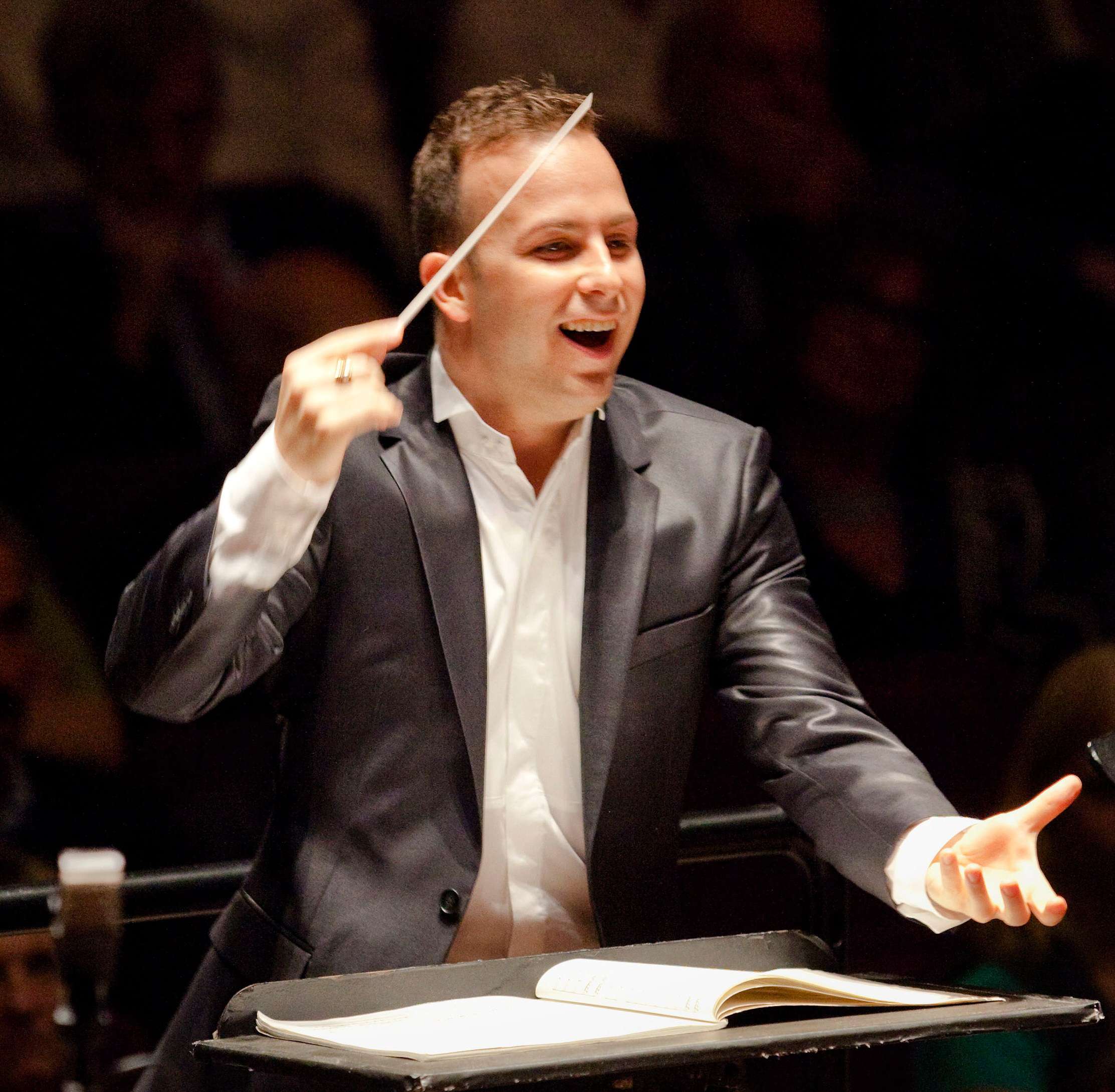|
Back
Bach and the Romantics with Yannick Nézet-Séguin Montreal
Maison symphonique de Montréal, Place des Arts
12/05/2012 - & December 7*, 2012
Johann Sebastian Bach: Cantata No. 51, “Jauchzet Gott in allen Landen”, BWV 51
Gustav Mahler: Symphony No. 4 in G Major
Suzie Leblanc (Soprano)
Orchestre métropolitain, Yannick Nézet-Séguin (Conductor) 
Y. Nézet-Séguin (© Marco Borggreve)
Montreal’s peripatetic “wunderkind”, Yannick Nézet-Séguin, was in town last week to conduct his first band, the Orchestre métropolitain, in a pair of concerts entitled “Bach and the Romantics”, previewed in the boroughs before being presented at the Maison symphonique. Although concurrent with the Montreal Bach Festival (led by Ton Koopman) they were not part of that series.
The first of the concerts (I’ll treat the second, featuring Bruckner’s Sixth, in a separate review) paired Bach’s Cantata No. 51, “Jauchzet Gott in allen Landen” (“Praise to God in all Lands”), with Mahler’s Symphony No. 4, the latter an odd choice for a Romantic work given its classical similarities to Mozart and Haydn (though also in a stretch, as Nézet-Séguin said in his opening remarks from the stage, to Bach himself). But the main reason for the pairing, he noted, was the joyful finales of the two—the “Chorale” and “Hallelujah” in the Bach cantata and the song “Das himmlische Leben” (The Heavenly Life) from the Mahler symphony—appropriate music to herald the holiday season.
The music, however, didn’t bring as much joy as one may have expected. Despite Nézet-Séguin’s energetic efforts on the podium, the orchestra didn’t seem to have its heart in the music. As the orchestra was reduced to about 20 members for the Bach, the cantata sounded thin, dry, and from where I was sitting in the third balcony, distant. Ms Leblanc’s pure, angelic voice delivered some sustained, crystal-clear top notes, but sounded muddy and indistinct in the faster passages for the lower register, and was obviously tiring in the “Hallelujah”.
Mahler’s Fourth didn’t fare much better. Nézet-Séguin drew a light, delicate but uninspired performance from the 65-piece orchestra. The music failed to blossom and connect to the deeper emotions. The first two movements were especially unconvincing. Although there were moments of grace, they lacked shape and luminosity. The first movement’s trotting eighth notes were feeble and lacked authority. The second movement failed to inspire terror. The third movement, despite some exaggerated tempos, had some lovely moments, particularly in the big climaxes. The maestro took the final movement at a jaunty clip, challenging Ms. Leblanc’s technical security.
This orchestra and conductor have been noted to produce wildly inconsistent performances. Maybe the upcoming Bruckner Sixth will swing the other way.
ConcertoNet is on Facebook
Twitter: @concertonet
Earl Arthur Love
|